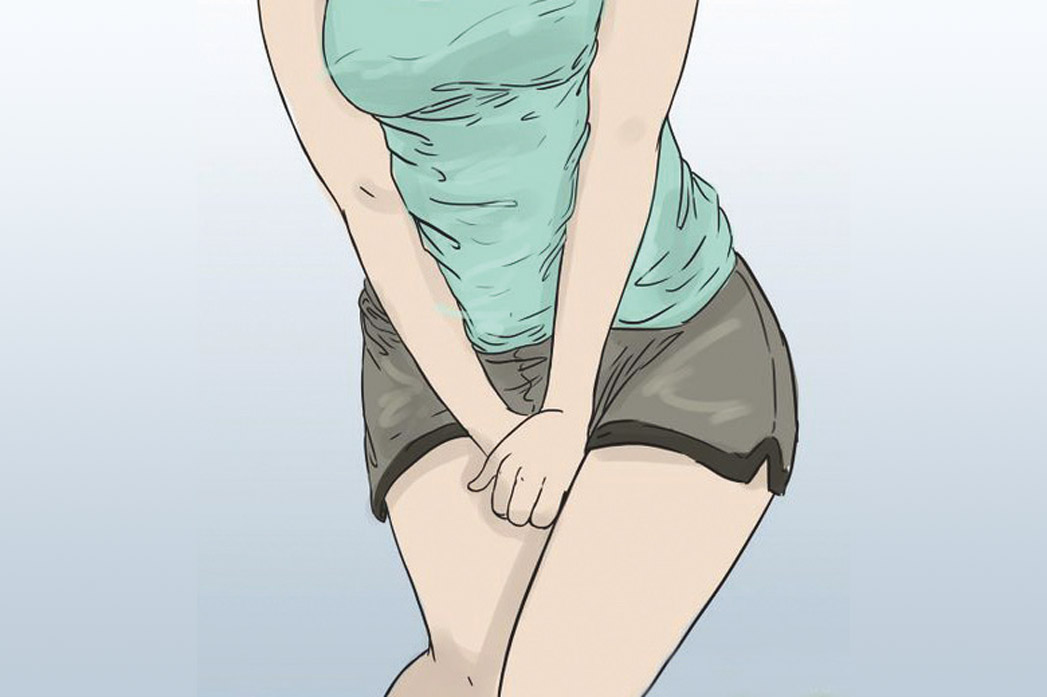By: Alesa Arnett
Of all the topics that interest me personally and so many changes this past year, my interests have shifted. Most important is to share something of value that not many women normally discuss for fear of embarrassment. This wonderful magazine is the perfect outlet to help raise awareness of all things “woman”—and man too. So, I want to talk about a common anatomical condition many women live with or correct. So here are the three dirty words: PELVIC ORGAN PROLAPSE (POP).
There… I said it! There are some of you that may be saying to yourselves, “Wow, I can’t believe she’s talking about this!” or, “Hallelujah, someone is talking about it publicly,” or better yet, “I have this issue. I’m so happy to see someone writing about it!” The conditions affect many, though they are not outwardly visible.
I am a retired Air Force medic and mother of three (natural births). No one EVER talked about preventing any type of pelvic organ prolapse condition—not during any annual wellness appointments and not before, during or after I delivered my babies. Life was great! I remained active as ever postretirement. While on active duty I always used the restroom before squadron physical training so I wouldn’t experience stress incontinence during the workout.
It was the normal thing to do. I always knew many women would “pee” a little if they coughed, sneezed or jumped; it was common. Then at age 50 I joined a 30-day boot camp challenge. Lots of high impact movements and running. I started to notice some pre-menopausal signs, such as missed menstrual cycles and “hot flashes.” However, six months later during a weightlifting class, I noticed things were changing just a bit. I made some appointments and even was informed that I my bladder and uterus had moved down a bit (cystocele/uterine prolapse) and was told the resolution would be surgery—lifting uplifting my bladder, removing my uterus, etc., etc.
How simple it was for the surgeon to suggest that the best option was to remove my insides! I continue to perform pelvic floor exercises, and to this day I manage to live with this gently aging body. I’ve greatly modified my physical activity: zero high-impact exercises, swimming, walking, spin class, modified core work. I joined Facebook support groups, and I’ve read lots of information. POP even affects young women; 26-year-olds have gone through total hysterectomies (removing your organs can have devastating effects), and some are already planning bladder lifts and repeat surgeries. Then there are those who choose to hasten surgery as if possible by using pessaries and sponges, losing weight, eating right, etc. There are even some products on the market to help manage incontinence, such as Poise Impressa bladder supports. There are wonderful surgical outcomes, but there are also horror stories.
I was mortified at some of these experiences I learned about and extremely frustrated that none of my medical providers talked about POP prevention at an early age! I find that most personal trainers don’t know much about it either! So, I continue to take things into my own hands. I know now what I need to do if surgery becomes my resolution of choice if symptoms become unmanageable. Luckily, I do not have issues urinating, as some do. And I am thankful that my husband and I have a strong and healthy intimate relationship.
There it is. I talked about it! I now feel it is my duty to share my knowledge, experiences and the resources I’ve found with others. I’ve done my best to
educate my daughters (I remind them to Kegel—we now laugh about it). My mom and I educate the women who work out at our local Curves because we must be there for each other! If you wish to consider this further, the resources I found can be sources of information for you too. Some professionals have different viewpoints, and it is up to you to make decisions about treatment or health with your providers and best after educating yourself.
Everything said, many women lead beautiful lives with POP, even after surgery; it is all very individual and very personal. My challenge to each woman is to bring the topic up to their provider; ask them to evaluate you for these conditions at your next wellness exam and discuss prevention.
The following are a couple resources I have used to educate myself. Check their websites and Facebook pages.
Whole Woman, Inc. / Pelvic Organ Prolapse Support (POPS). Don’t forget YOUR DOCTORS.
I wish you each good health, happiness and wholeness.
Alesa Arnett is a United States Air Force Veteran and mother of three. She has traveled around the globe, often separated from her family serving as a medic for more than 20 years. She retired in 2010 in Texas where she still resides with her wonderful, supportive husband of 24 years. She is a grandmother a curious and energetic two-year-old named Max, has another grandchild due this summer and her son currently serves as a U.S. Marine. She can be reached via email at: adarnett@gmail.com


